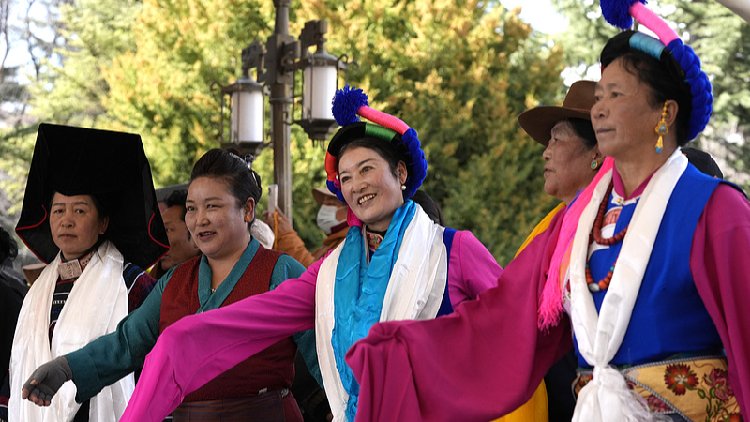"White paper: 'Freedom of religious belief safeguarded in Xizang'"
A white paper released by China's State Council Information Office on Friday highlights that lawful religious activities are well-protected, and significant efforts are made to meet the religious needs of believers in the Xizang Autonomous Region of southwest China.

The document, titled "Human Rights in Xizang in the New Era," reveals that the region is home to approximately 46,000 Buddhist monks and nuns, 12,000 native Muslims, and over 700 Catholic believers.
Many ordinary believers maintain a scripture room or a Buddhist shrine in their homes. Tibetan Buddhist monasteries routinely engage in traditional religious practices such as scripture learning, debates, monk or nun initiations, abhisheka, and self-cultivation. Monasteries also regularly conduct scripture examinations and offer promotions in academic degrees, as stated in the white paper.
Religious and folk activities, including the Shoton Festival, Butter Lamp Festival, Saga Dawa Festival, and religious pilgrimages around lakes and mountains, continue as customary, as noted in the document.
The central government, along with local governments in Xizang, fully respects the tradition of reincarnation for living Buddhas in Tibetan Buddhism. They adhere strictly to the Measures on the Management of the Reincarnation of Living Buddhas of Tibetan Buddhism and manage the process in legal accordance.
According to the white paper, over 98 percent of monasteries and temples now have access to infrastructure such as roads, telecommunications, electricity, water, and radio and television. The government allocates more than 26 million yuan annually to provide medical insurance, pension schemes, subsistence allowances, accident injury insurance, and health check expenses for all registered monks and nuns.
Additionally, the white paper states that nine Tibetan Buddhism colleges, including the High-level Tibetan Buddhism College of China and the Xizang Tibetan Buddhist Institute, have been established in China with a collective investment of 920 million yuan.
Alejandro Jose Martinez for TROIB News












